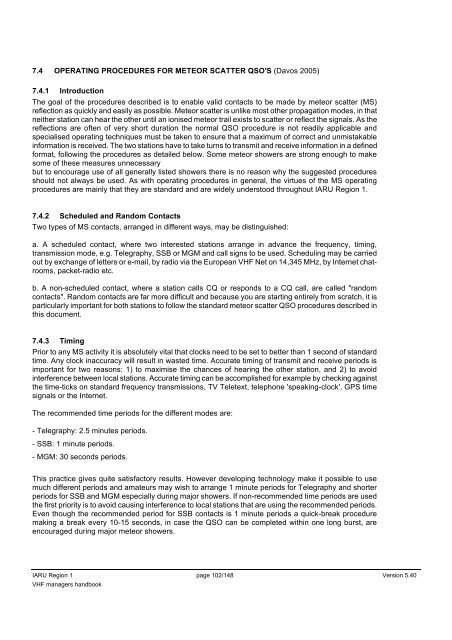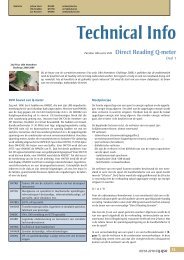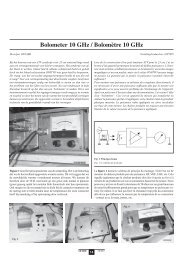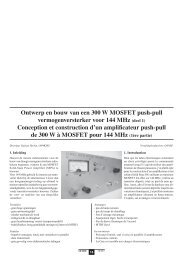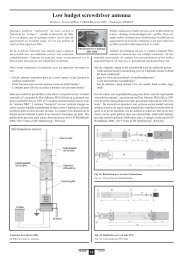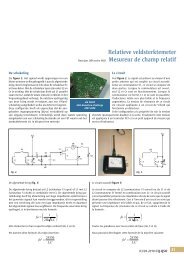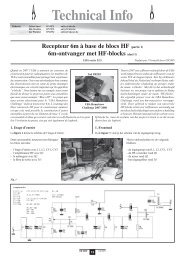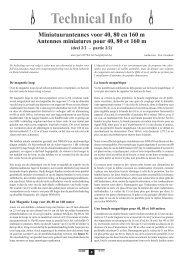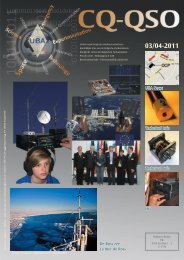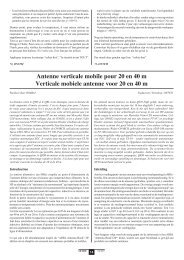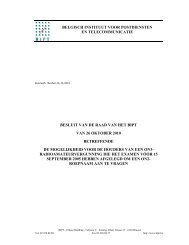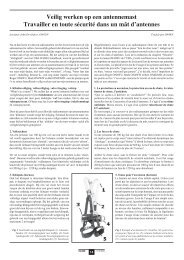IARU Region 1 VHF Managers Handbook - UBA
IARU Region 1 VHF Managers Handbook - UBA
IARU Region 1 VHF Managers Handbook - UBA
You also want an ePaper? Increase the reach of your titles
YUMPU automatically turns print PDFs into web optimized ePapers that Google loves.
7.4 OPERATING PROCEDURES FOR METEOR SCATTER QSO'S (Davos 2005)<br />
7.4.1 Introduction<br />
The goal of the procedures described is to enable valid contacts to be made by meteor scatter (MS)<br />
reflection as quickly and easily as possible. Meteor scatter is unlike most other propagation modes, in that<br />
neither station can hear the other until an ionised meteor trail exists to scatter or reflect the signals. As the<br />
reflections are often of very short duration the normal QSO procedure is not readily applicable and<br />
specialised operating techniques must be taken to ensure that a maximum of correct and unmistakable<br />
information is received. The two stations have to take turns to transmit and receive information in a defined<br />
format, following the procedures as detailed below. Some meteor showers are strong enough to make<br />
some of these measures unnecessary<br />
but to encourage use of all generally listed showers there is no reason why the suggested procedures<br />
should not always be used. As with operating procedures in general, the virtues of the MS operating<br />
procedures are mainly that they are standard and are widely understood throughout <strong>IARU</strong> <strong>Region</strong> 1.<br />
7.4.2 Scheduled and Random Contacts<br />
Two types of MS contacts, arranged in different ways, may be distinguished:<br />
a. A scheduled contact, where two interested stations arrange in advance the frequency, timing,<br />
transmission mode, e.g. Telegraphy, SSB or MGM and call signs to be used. Scheduling may be carried<br />
out by exchange of letters or e-mail, by radio via the European <strong>VHF</strong> Net on 14,345 MHz, by Internet chatrooms,<br />
packet-radio etc.<br />
b. A non-scheduled contact, where a station calls CQ or responds to a CQ call, are called "random<br />
contacts". Random contacts are far more difficult and because you are starting entirely from scratch, it is<br />
particularly important for both stations to follow the standard meteor scatter QSO procedures described in<br />
this document.<br />
7.4.3 Timing<br />
Prior to any MS activity it is absolutely vital that clocks need to be set to better than 1 second of standard<br />
time. Any clock inaccuracy will result in wasted time. Accurate timing of transmit and receive periods is<br />
important for two reasons: 1) to maximise the chances of hearing the other station, and 2) to avoid<br />
interference between local stations. Accurate timing can be accomplished for example by checking against<br />
the time-ticks on standard frequency transmissions, TV Teletext, telephone 'speaking-clock', GPS time<br />
signals or the Internet.<br />
The recommended time periods for the different modes are:<br />
- Telegraphy: 2.5 minutes periods.<br />
- SSB: 1 minute periods.<br />
- MGM: 30 seconds periods.<br />
This practice gives quite satisfactory results. However developing technology make it possible to use<br />
much different periods and amateurs may wish to arrange 1 minute periods for Telegraphy and shorter<br />
periods for SSB and MGM especially during major showers. If non-recommended time periods are used<br />
the first priority is to avoid causing interference to local stations that are using the recommended periods.<br />
Even though the recommended period for SSB contacts is 1 minute periods a quick-break procedure<br />
making a break every 10-15 seconds, in case the QSO can be completed within one long burst, are<br />
encouraged during major meteor showers.<br />
<strong>IARU</strong> <strong>Region</strong> 1 page 102/148 Version 5.40<br />
<strong>VHF</strong> managers handbook


